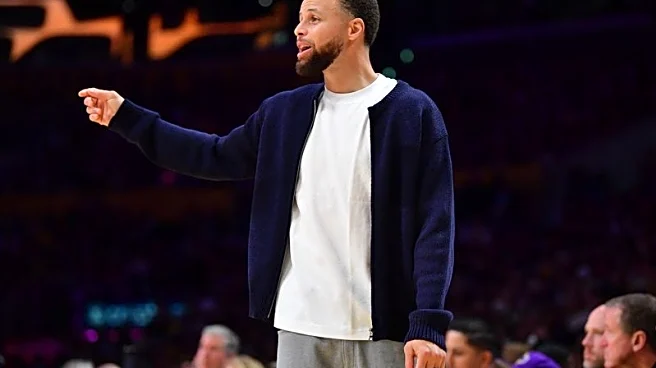What's Happening?
Zlatan Ibrahimovic has named Pep Guardiola, Jose Mourinho, Carlo Ancelotti, and Fabio Capello as managers who have significantly influenced the evolution of soccer. Speaking at the European Club Association General Assembly, Ibrahimovic reflected on his career and the impact these coaches had on his success. Despite a contentious relationship with Guardiola at Barcelona, Ibrahimovic acknowledged his influence on modern football. He also expressed admiration for Ancelotti, predicting his potential success with Brazil in the 2026 World Cup. Ibrahimovic's comments underscore the importance of managerial leadership in shaping the careers of players and the strategic direction of teams.
Why It's Important?
Ibrahimovic's recognition of these managers highlights the critical role of coaching in soccer's development. The strategies and philosophies introduced by Guardiola, Mourinho, Ancelotti, and Capello have shaped modern football tactics and team dynamics. Their influence extends beyond individual teams, affecting global soccer trends and inspiring future generations of coaches. Ibrahimovic's endorsement of Ancelotti for Brazil's World Cup campaign emphasizes the potential impact of experienced European coaches on international teams. This recognition may encourage clubs and national teams to prioritize managerial expertise in their pursuit of success.
What's Next?
As the 2026 World Cup approaches, Ancelotti's leadership of Brazil will be closely monitored. Success in the tournament could further validate Ibrahimovic's praise and solidify Ancelotti's legacy as a transformative coach. Additionally, Ibrahimovic's comments may inspire other players to reflect on the influence of their managers, potentially leading to increased recognition of coaching contributions in soccer. The ongoing evolution of coaching strategies will continue to shape the competitive landscape of the sport, with clubs and national teams seeking innovative approaches to achieve success.
Beyond the Headlines
Ibrahimovic's reflections on managerial influence raise questions about the cultural and ethical dimensions of coaching in soccer. The emphasis on tactical innovation and leadership may prompt discussions on the balance between player autonomy and managerial control. Furthermore, the recognition of European coaches in international contexts highlights the global exchange of ideas and strategies in soccer, potentially affecting cultural perceptions of the sport and its development.










